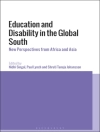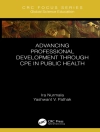Recent world-wide political developments have persuaded many people that we are again living in what Hannah Arendt called “dark times.” Jackson’s response to this age of uncertainty is to remind us how much experience falls outside the concepts and categories we habitually deploy in rendering life manageable and intelligible. Drawing on such critical thinkers as Hannah Arendt, Theodor Adorno, Walter Benjamin, and Karl Jaspers, whose work was profoundly influenced by the catastrophes that overwhelmed the world in the middle of the last century, Jackson explores the transformative and redemptive power of marginalized voices in the contemporary conversation of humankind.
Table of Content
Acknowledgements
Introduction
Chapter 1. Mistaken Identities: The Task of Thinking in Dark Times
Chapter 2. Radical Empiricism and the Little Things of Life
Chapter 3. The Witch as a Category and as a Person
Chapter 4. The New Materialisms
Chapter 5. Words and Deeds
Chapter 6. Critique of Cultural Fundamentalism
Chapter 7. Existential Scarcity and Ethical Sensibility
Chapter 8. Identification and Description: An Essay on Metaphor
Chapter 9. Islam and Identity among the Kuranko
Chapter 10. In Defense of Existential Anthropology
Notes
Index
About the author
Michael Jackson is internationally renowned for his work in the field of existential anthropology. He is a leading figure in contemporary philosophical anthropology and widely praised for his innovations in ethnographic writing. Jackson has done extensive fieldwork in Sierra Leone since 1969, and has carried out anthropological research in Aboriginal Australia, Europe, and New Zealand.












